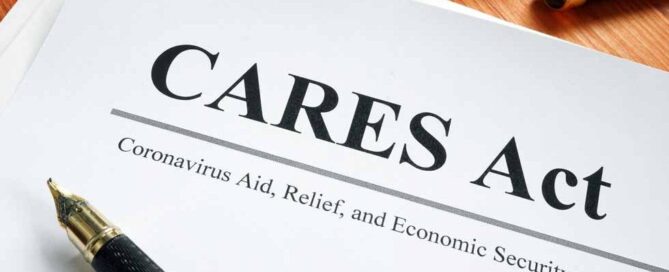July Cares Act Update
As you may be aware, the Paycheck Protection Program that was passed into law earlier this year has seen some major changes since the law has passed. Remember, initially, you could borrow up to 2.5 times your average monthly payroll, and then utilize the proceeds for payroll for 8 weeks, rent, lease payments, and utilities. If you did utilize the proceeds for payroll over the next 8 weeks, and no more than 25% of the proceeds were used for rent, utilities, and lease payments, the loan would be considered forgivable, and therefore, you would not have to pay it back.
A couple of weeks ago, the SBA issued the Paycheck Protection Program Loan Forgiveness Application. It is highly convoluted, and we are looking into what it would cost for us to assist our clients with it. Please let us know if you have interest in us completing this application on your behalf. Click here for the application.
Regardless, below are some highlights of H.R. 7010 (THe Paycheck Protection Program Flexibility Act of 2020) that was passed into law this past Friday.
Since then, the IRS has issued guidance that although the loan forgiveness would not be considered taxable, any deductions paid from the proceeds would not be deductible. In effect, this would mean that the PPP loan would be taxable income. Our hope is that Congress was going to address this, but H.R. 7010 does not address this, and it doesn’t seem likely at this point that it will be addressed. A link to H.R. 7010 is below. https://www.congress.gov/bill/116th-congress/house-bill/7010/text
1. Unforgiven PPP loans maturity will now be over 5 years, instead of 2.
2. You can now apply for a PPP loan up until December 31, 2020. Previously June 30, 2020 was the deadline.
3. The 8 week period covered period has been extended to 24 weeks, but no later than December 31, 2020. 4. This changes the amounts that can be utilized for compensation from an 8 week period to a 24 week period, although you can elect to utilize the 8 week period if you received your loan proceeds before June 5, 2020. This also means that more compensation will be eligible to be used from PPP loan proceeds.
5. Non-payroll Costs may be up to 40% of the loan amount, up from 25%.
We understand that these are confusing times, so please contact us if you have any additional questions or concerns.



